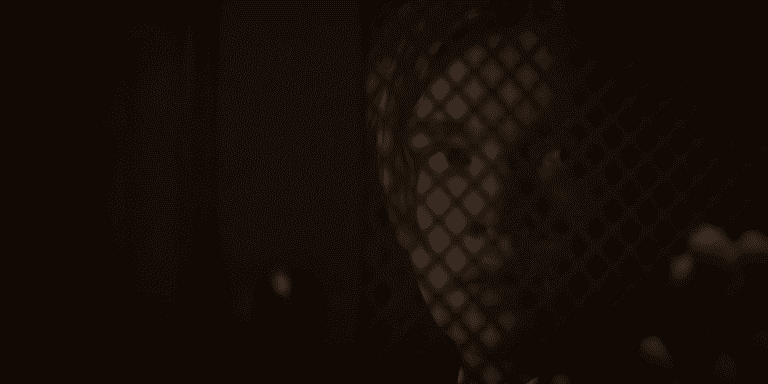
Words on Bathroom Walls, a teen romantic drama released to theaters this past weekend, takes on two subjects rarely dealt with—or, at least, dealt with well—in film: schizophrenia and confession.
Adam is schizophrenic, which means he’s never alone. Aspects of his mind take on physical form for him: a hippy, well-meaning guru; a tough-as-nails bodyguard; a bathrobe-wearing schlub that, according to Adam, feels pulled out of an ‘80s-circa romcom. But Adam’s mind contains a darker voice, too—one that pulls Adam toward paranoia and self-destruction. And as he deals with a new school, new meds and a new development at home, that voice ultimately threatens to overwhelm him.
That’s not his only issue. See, Adam falls in love, too—with a smart, outspoken fellow student named Maya. She seems to like everything about him: His wit, his compassion, his love of cooking, even his insecurities.
But she doesn’t know he’s schizophrenic. And Adam won’t tell her. For years, the teen tried to keep his mental illness hidden from everyone, including his single mother, until it blew up like a bottle rocket. But Maya wasn’t there for the blast, and Adam thinks that there’s no reason she has to know about his condition at all.
And that brings us to the second subject: confession.
Adam’s new school, St. Agatha’s, is Catholic, and confession is part of the curriculum. Adam doesn’t believe in God, but no matter: It’s part of the curriculum, and as Adam attends confession, he and the attending priest develop a friendship of sorts. The priest accepts Adam’s unbelief, but he still offers biblical wisdom and advice, often in the form of Bible verses that he hopes Adam will draw his own meaning from.
But Adam’s not ready to confess everything. He keeps the depth of his illness from the priest, too.
I like the way the film shows its faith here: It’s not preachy, just simply part of the plot. But it’s a critically important part, too. And I think that, when framed in a spiritual context, Adam’s own war with himself shares some similarities to the war that each of us fight.
“The only person who can’t reject you is Jesus, right?” Adam jokes with his new principal. But there’s a deeper truth hidden in that snide aside, both for Adam and for us. After all, Adam’s not the only one who deals with dark voices and secrets.
This is in no way to minimize mental illness or the serious issues Adam deals with here. But while we may not have literal voices coming from the closet telling us we’re worthless, that people don’t love us and that we don’t deserve that love, most of us hear quieter voices telling us that from time to time. And most of us, of course, hide things, sometimes from even those we love the most. We worry that if people knew those things, we’d be cast out from their love. Be almost like lepers in their eyes: unclean. Unworthy. We hide these things even from ourselves. As if that self-deception would hide them from God, too.
Evangelical Christians, the faith tradition I come from, don’t have a sacrament of confession, like Catholics do. But after watching Words on Bathroom Walls, I wondered again whether we should emphasize it more.
Confession, Adam’s priest tells him, “gives us an opportunity to admit we’re flawed.” Everyone is flawed, of course, and everyone—including God—knows it. “But admitting [those flaws] gives us the opportunity, and the strength, to face them.”
And that’s the secret, isn’t it? To have the strength to face them.
Not all Christians walk into confessional booths, but that doesn’t eliminate the need, or benefit, of confession. Confessing our sins and weaknesses, our flaws and our fears, can be of great help to us. Just admitting them to ourselves—to give voice to them—may quiet some of the darker voices rattling around in our brains. And that may clear room to hear other, better voices. Maybe even the voice of God.













